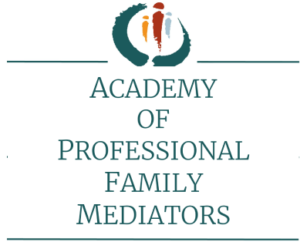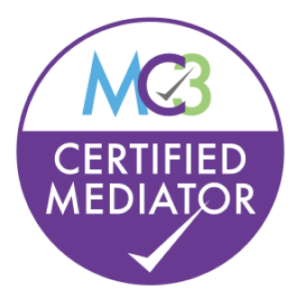What is Mediation?
Mediation is a confidential process in which a neutral third-party mediator assists the parties in reaching an agreement without going to court. Whatever is said in mediation cannot be disclosed in court. Mediation is typically less formal than court, allowing for a more flexible and collaborative environment. Parties can attend mediation with or without legal representation.
Mediation is often used in the divorce process, and it is intended to help parties openly communicate with one another to reach a mutual agreement. In a divorce case, there are generally multiple issues to resolve, such as property division, child custody, spousal support, and child support. It is important to note that only some people who attend mediation reach a compromise or mutual agreement.
Why Should I Attempt Mediation?
Mediation is an excellent tool if you and the other party are willing to work amicably and respectfully together. This allows you to have the most control over the outcome of your case, as going to court forces the judge to make orders rather than you. Mediation is one of the best ways to stay out of court, assuming you and the other party can agree.
Additionally, mediation allows you to keep your case as private as possible, as most cases litigated in court are open to the public. Mediation generally takes significantly less time than litigation.
It is important to note that mediation is only sometimes the appropriate choice for a case. Some parties can resolve their issues together without needing a neutral third party to intervene and assist with communication.
If Mediation Fails, what is the Next Step?
If mediation fails, the following options exist:
Court Intervention: If you cannot resolve your case independently, the next step may be to seek court intervention. Parties can represent themselves with the help of Family Court Services, or they may choose to seek legal representation. You would then submit documents to the court requesting the court to make orders on your behalf.
Continue Negotiations Independently: Just because mediation fails does not mean you cannot continue negotiations on your own. It is possible to reach an agreement without a mediator.
Continue Mediation with a New Mediator: Not every person works well with every mediator. Sometimes, changing mediators will help the parties work more effectively.
A combination of the above may work best and lead to a final resolution of your case.
Although only some cases will be resolved in mediation, that does not necessarily mean mediation has failed. There are numerous reasons why mediation may fail, and it does not necessarily mean that either party did anything wrong. Mediation is a process, and even if it initially fails, agreements and settlements can be made in the future. Many people who attend mediation and fail to agree often go back to mediation after the court resolves the main issues in their case.
What Happens if I Fail to Comply with a Mediation Agreement?
A mediated agreement between parties is a binding contract. If you fail to abide by the terms of the agreement, the other party can seek to enforce the agreement or ask that you be held in contempt of court. You may also be liable for sanctions, which generally require you to pay the other party’s attorney’s fees and costs.
If I Refuse Mediation, Will it be Used Against Me in Court?
If you refuse to mediate your case, the court will not use this fact against you. Not all cases are the right fit for mediation. One example is a power imbalance between the parties (e.g., one party has an accommodating personality, and the other is very aggressive). In California, if you have minor children, you are required to attend a mediation with Family Court Services to attempt to resolve parental and custody issues. If you don’t have minor children, you are not obligated to participate in mediation voluntarily.
The court generally requires that parties or their attorneys “meet and confer.” This means the court wants the parties to attempt to work out their issues before seeking court intervention. However, you do not have to attend mediation to meet your burden of meeting and conferring.
If you are interested in mediating your divorce proceeding, we are here to help! Please contact us today!
























